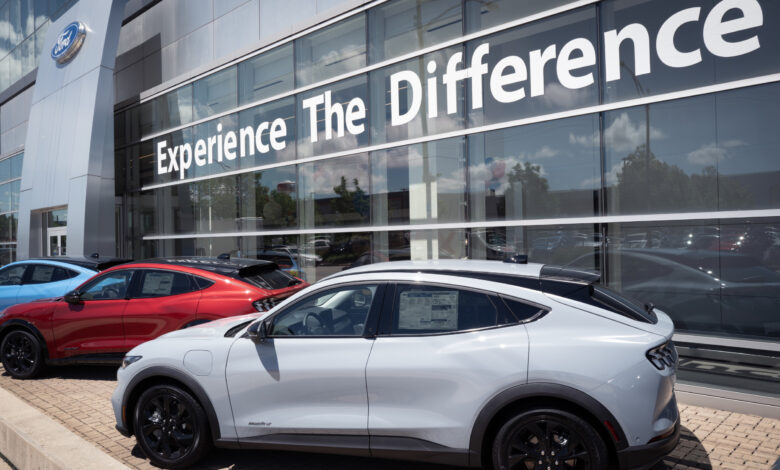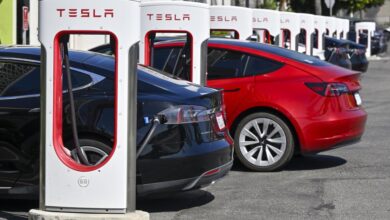New Vehicle Fee for Thousands of Americans

Vermont has announced a new fee for electric vehicle (EV) owners, effective from January 1 2025, potentially affecting thousands of road users.
Starting next year, EV owners in the state will be required to pay an annual fee of $89 for fully electric vehicles and $44.50 for plug-in hybrid vehicles, according to new legislation.
The new fees are designed to compensate for the loss of gas tax revenue, which traditionally funds road maintenance and transportation projects but has been declining with the rise of fuel-efficient and electric vehicles.
Vermont Governor Phil Scott signed the proposal into law earlier this week, marking a notable development in Vermont’s approach to balancing sustainable transportation initiatives with infrastructure funding needs.
“EVs aren’t really paying their fair share. … The bridges still need to be repaired, that we still need paving, culverts need to be replaced—and somebody has to pay for it. So, I think it’s moving in the right direction,” Scott said about the decision, as reported on Vermont Public.
Scott Olsen/Getty Images
According to the report, the proposed surcharge would generate about $1.7 million annually in new revenue.
Newsweek reached out to Governor Scott on Friday for further comment.
As EVs grow in popularity, the introduction of these fees places Vermont among a growing number of states implementing similar measures. According to Tax Foundation U.S., as reported by Inside EVs, there are over 30 states adopting similar policies, including California, Washington, and Texas. However, other New England states did not appear on the list.
Environmental groups and EV advocates have expressed concerns that fees could discourage the adoption of electric vehicles, potentially slowing progress toward climate goals.
Government legislation published in February of this year titled Road Usage Charges for Electric Vehicles, shows that there are around 13,000 EVs registered in Vermont. New regulations detailed in the legislation state that automakers must “deliver an increasing number of zero-emission light-duty vehicles each year,” starting in 2026 with an anticipated 35 percent of sales and looking to almost double the amount, to 68 percent, by 2030.
This decision is in line with Scott’s efforts in recent years to increase electric vehicle use in Vermont as part of the state’s emissions reduction goals. As stated on an official Vermont government website, the transportation sector is “the largest source of greenhouse gas emissions in Vermont, accounting for about 45 percent of the state’s greenhouse gas emissions.”
“Electrifying the transportation sector will help clean the air and keep millions of dollars within our economy,” said Governor Scott in 2019. “While more work needs to be done, Vermont has taken strong steps toward a renewable transportation sector. Accelerating vehicle electrification will continue to be a priority of my Administration.”
According to the Vermont government website, the state plans to continue investing in EV infrastructure, such as charging stations, to support the growing number of electric vehicles on the road. The National Electric Vehicle Infrastructure (NEVI) Formula Program is dedicated funding to states to deploy electric vehicle charging infrastructure along key interstate and state highway corridors.
The report states that for federal fiscal years 2022-2026, Vermont will receive $21.2 million toward this.
Uncommon Knowledge
Newsweek is committed to challenging conventional wisdom and finding connections in the search for common ground.
Newsweek is committed to challenging conventional wisdom and finding connections in the search for common ground.



